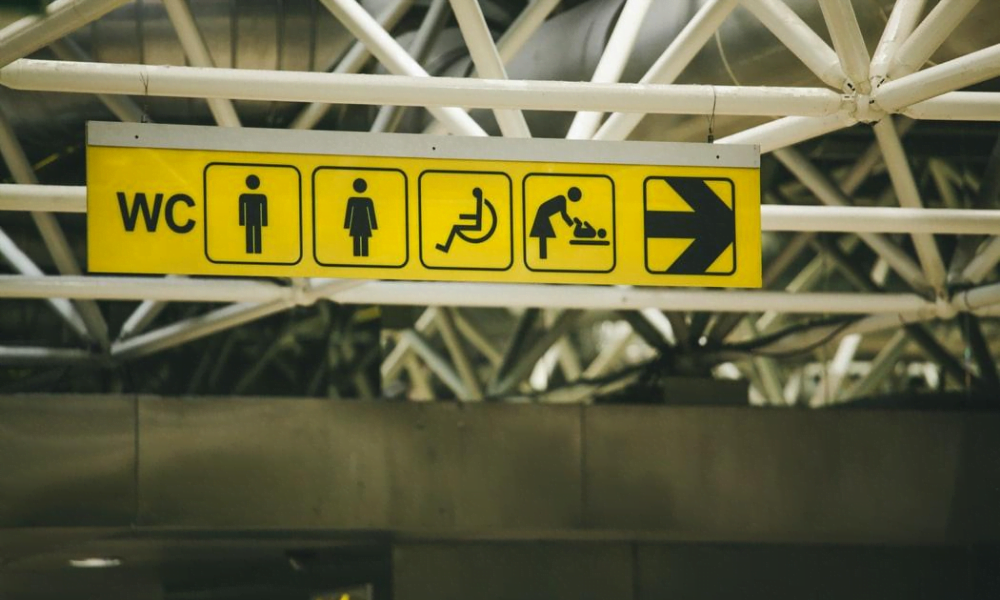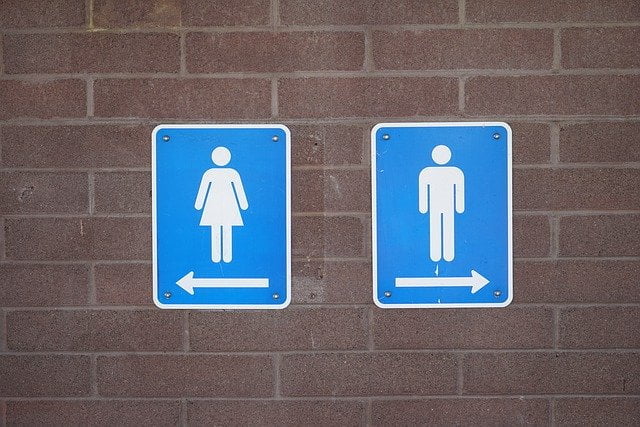Your guide to bladder and bowel care on the go – sponsored by Fittleworth
3 August 2020

Bladder and bowel care is important. Whether you are home or away and whatever your level of injury we want to be able to support you. That’s why we’ve put together some top tips, with the help of staff and volunteers, on managing bladder and bowels on the go.
This article is sponsored by Fittleworth
There are different bladder and bowel care methods for different levels of injury
Hand function obviously has an impact of what methods are used for managing your bladder. If you have full dexterity in your hands you’d use intermittent catheters, inserting one when needed. Andy, who has a level T3 injury finds single use catheters useful, but he knows that there can be a risk of leakage if not emptied when full. More often than not his schedule depends on how much caffeine he drinks!
With a higher level injury there are several options. Chris, with a C6 level injury chooses to use a suprapubic catheter. He had surgery to make a channel allowing the catheter to go directly into his bladder with ease. This is not for everyone though. You may want to use a more permanent catheter indwelling using a hole that your body already has, or perhaps if you’re male you may look to use a sheath. All these options will allow you to free flow into a drainage bag or clamp off with a valve. This lets your bladder fill up and then allows you to unclamp when desired, providing full independence.
Linda, who has a C5/6 injury also has a suprapubic catheter, and uses a flip-flow valve and a leg bag. She closes the flip-flow valve a couple of times a day to maintain bladder capacity and leaves it open the rest of the time, but you can also keep it closed and just open it when your bladder is full. She’ll usually empty the bag every few hours, depending on how much she drinks. Linda also makes sure she empties it before leaving home when going somewhere where there might not be easy access to a toilet. One advantage of having an indwelling catheter is being able to connect it to a night bag overnight, so you never have to get up to go to the toilet!
You have to choose an option that’s right for you. Whatever you chose remember to practice general hygiene around a catheter site to reduce the risk of infection. It’s also important to empty your bladder completely as this too could cause an infection. From time to time you may find that you catheter is blocked. If this happens often, make sure you drink more water, and Linda takes vitamin c as it may help prevent catheter blockages. Just be aware some brands can have a laxative effect.

Knowing the bladder and bowel care warning signs
Everyone lives busy lives but whether you’re at work, driving, going for a mid-morning push or walk, it is important to get to know the warning signs your body is telling you for if your bladder is full. These may be different for everyone, but could include nausea, excessive sweating, goosebumps or pins and needles. If you’re out and about with no access to a toilet it could be a good idea to drain your bladder into an empty drinks bottle to relieve yourself.
Remember that accidents do happen, just as they can for able bodied people. It’s nothing to stress or be embarrassed about. If you have one at work make a swift exit and explain to your manager at the time if you feel comfortable to do so. If not, let someone know that you have to go home and explain why later in the day.
What’s going in must come out
Your diet is always going to affect your bladder and bowels. To remain healthy it’s important to keep hydrated – drinking at least two to three litres of water a day should keep your urine clear and reduce your risk of urinary tract infections. Moreover, your water intake helps ease constipation – vitally important if you have been prescribed laxatives to support your bowel movements.

In terms of your food intake it often comes down to listening to your body and learning what has an effect. Andy, Chris and Linda can all testify to this. Andy knows that for him salty food can be dehydrating, often causing him to drink more. This obviously could make him need the toilet more. Chris knows that he will empty his bowels every other day and so remains mindful of this with his diet. As does Linda, who eats meat, but makes sure that she also eats plenty of fruit and vegetables.
Managing your bowels with a spinal cord injury can be time-consuming and is often dependent on how often you need to do it and can also depend on the way in which you do it. This can also differ depending on your injury level. You may be able to manage your own bowel routine, or you may require assistance from a personal assistant, if you have support from one. Anything in excess including caffeine and alcohol can have an impact on your bowel regime – possibly making it more active and loose. Similarly, your Friday night curry can often get things moving in the bowel department!
There’s often a taboo around mentioning anything to do with your bladder and bowels. It’s important to remember that you are not alone and you should be talking about it if you want to. There is a lot of information out there if you require support, but make sure it is from a reputable resource. Contact your spinal unit, or NHS continence service.
Be sure to visit our sponsor Fittleworth’s website to see the products they offer for people with a spinal cord injury. We also have a section on our website with more information on bladder and bowel care.



